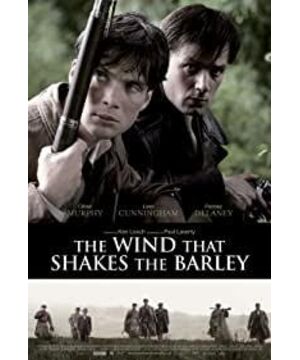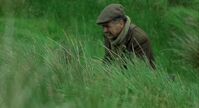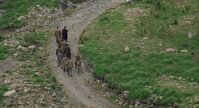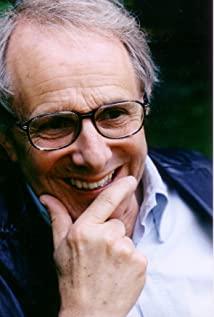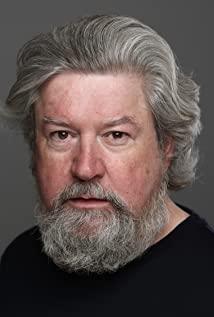Films with metaphors are obvious in terms of history and the present, but the director's grasp of the whole film is very calm and calm, telling the revolutionary enthusiasm of the Irish land in the 1920s and the state of mind of the young people in a cold tone. National dignity is often exchanged for the blood of soldiers. People stand on the cusp of the storm with the desire for a better society without fear. The film reveals the sadness and destiny of the frontline revolutionaries from an objective perspective. At the same time, I also chanted those persevering and persevering victims.
In the early twentieth century, Ireland was still under British colonial rule. Capitalists and armies set foot on this peaceful land, plundering wealth, ravaging and enslaving the local people. The film opens in a hockey game with a pleasant atmosphere, and a small conflict shows the unruly side of the Irish; then there is a brief dialogue, the protagonist Dane said that he will go to London, and everyone is sighing about it; next, the beastly Britain The guard, the weak Irish family and the 17-year-old who was brutally murdered because they did not want to use English to report his name, formed a group of fierce conflicts, which completely broke the harmony and freedom of the first act, forming a strong contrast.
Afterwards, the men gathered together and discussed that they should fight back. Dane ignored everyone's advice and insisted that the "British Empire" was invincible and all resistance was in vain, so he decided to leave as soon as possible. However, when he stepped into the train station, he ran into him because he refused to carry British soldiers. The driver, the co-pilot and the station staff were knocked to the ground. Faced with more than a dozen gunpoints, they had no fear. Dane was touched by this and devoted himself to the armed revolution until he finally gave up his life. This is a decisive change in thought, which changed the fate of the protagonist and established the basic development direction of the film. There are no lack of similar plots in other scripts, which can be said to be unsurprising, but this film is not limited to this and creates a The heroic image of bravery and combativeness, in the scene of wooing businessmen to intervene in government courts in order to obtain weapons, fully demonstrates the immaturity of their revolutionary and political thoughts.
They are fighting, unyielding, unforgiving, and often impulsive; they do not seek to survive or are satisfied with the forgery of peace under a disguised colonial; they need true sovereign independence and national freedom, but they don’t know who can lead them and fight with them until Establishing a democratic regime, so lost or even hesitating, as if singing a powerful Irish tune coming from the mist, then leaving the mist, and rushing to another battlefield.
Of course, in the era of brave torrents, the situation is changing rapidly. Some people insist on their beliefs, while others stop and watch. It is very ironic that Dane’s younger brother, Teddy, who insisted on fighting by force at the beginning, joined the Guards after the peace talks. Unfortunately for the revolutionary team that continued to fight, Dane was captured in the conflict. Country, love, and victory are all waiting for this tenacious and thin warrior. However, his young life was betrayed by his closest brother. It is understandable why Dane couldn't help trembling fragilely before his death.
Ken Roach is worthy of admiration. As a British director, daring to put this history on the screen is a success in itself. Every country has some stories behind it, and introspection represents sincere confession. The behind-the-scenes will one day be shown in front of the world, time to testify.
View more about The Wind that Shakes the Barley reviews


